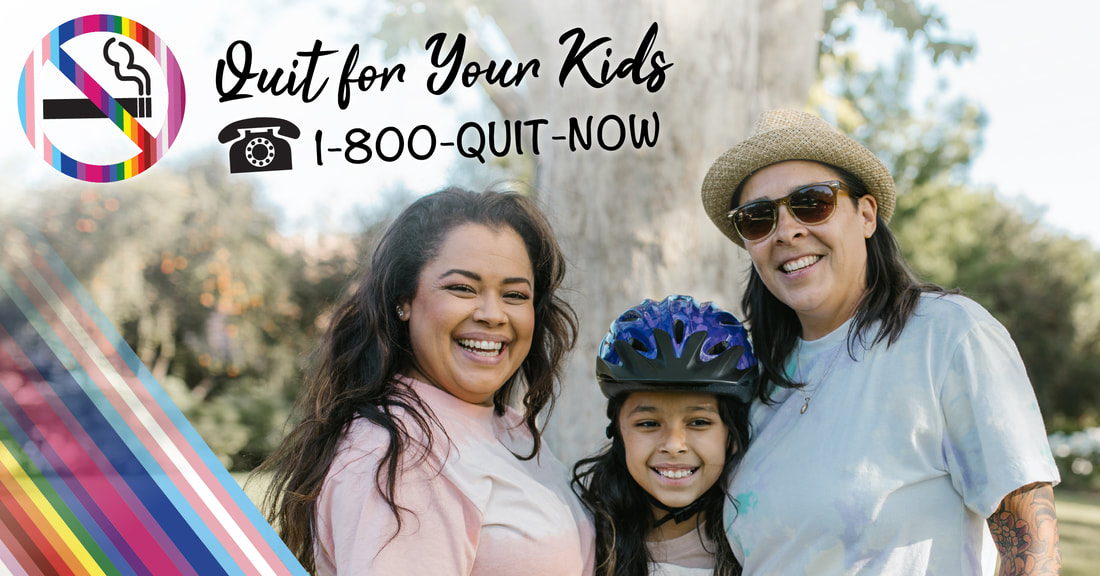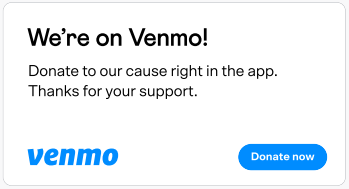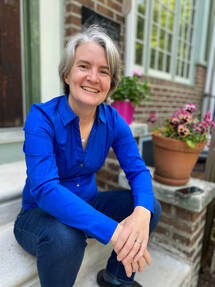 After 15 years as the guiding light of Philadelphia Family Pride, Stephanie Haynes has decided to step down as Executive Director. Stephanie's last day with the organization will be May 1st. Long time board members Sandra Telep (she/her/ella) and Jadzia Axelrod (she/her) are taking over the staff roles with the group and are already hard at work. As PFP has grown and changed in the past decade and a half to meet the challenges LGBTQIA+ families face, the one constant has been Stephanie, working tirelessly behind the scenes to make sure every event, party and potluck goes off without a hitch. “Stephanie has been a star player in all things PFP,” says PFP co-chair Lori Keslowitz. “I have always admired her dedication and persistence at creating a safe space for LGBTQIA+ families." 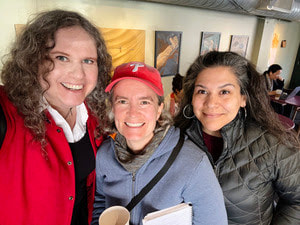 Jadzia, Stephanie, and Sandra after a recent staff meeting. Jadzia, Stephanie, and Sandra after a recent staff meeting. Stephanie was hired as PFP's Community Coordinator in 2009, a role that would eventually become the Executive Director. She saw the beginning of PFP’s Family Matters Conference, and has been instrumental in its success. She has forged lasting bonds between PFP and other LGBTQIA+ organizations in Philadelphia and the counties around it. Stephanie’s organizing savvy is well-known, with many local leaders in awe and amazement at her ability to stretch PFP’s modest budget into so many must-attend events. But her strength has always been her unending support for LGBTQIA+ families in Philadelphia, including their creation. “Like many families in our community, Stephanie has played a critical role in forming and supporting my pathway to parenthood,” says PFP co-chair Micheal Galvan. “Her impact on Philadelphia is immeasurable, and we are so fortunate to have had her leading the way for Philadelphia Family Pride for 15 years. PFP's board, our members, and all our families wish her nothing but success in all her future endeavors - her impact on any organization or community will truly be admired.” 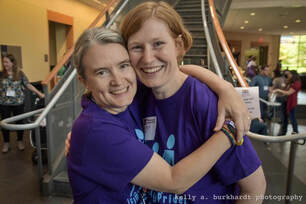 "I'm filled with so much gratitude and a little grief as I prepare to step away from Philly Family Pride," Stephanie says. "Most of all I treasure the connections I’ve made over the years with all of you. I couldn’t have done this work for so long without the support of my wife Vicky, our twin sons, the group's numerous committed board members, and all of the community support for LGBTQIA+ led families. I am so grateful to Sandra and Jadzia for taking on these leadership roles and am excited to see what new directions the group takes in the coming years. " Throughout her tenure, Stephanie has made it a mission to make every family who might fit in under PFP’s umbrella feel welcome. “There isn’t just one or two ways to make a family or one way to be a family,” she told Philadelphia Magazine in an interview in 2017. This philosophy of inclusion has been instrumental in allowing PFP to blossom into the organization it is today. While Stephanie moves on to her next adventure, PFP always be guided by her impact and generosity of spirit. 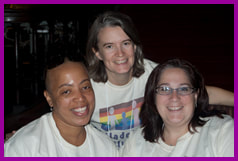 To celebrate Stephanie's tenure at PFP, we are holding a farewell party in her honor on Saturday, April 27th from 4-6pm at the William Way Center, 1315 Spruce Street in Center City Philadelphia. There will be refreshments, sharing of well wishes, and an appearance by drag queen Brittany Lynn. We invite you to reserve your "pay what you can" tickets now at this link. If you aren't able to make it and would like to make a donation to honor Stephanie's work with the organization, you can do so here. Thank you! Read the article in the Philadelphia Gay News from 4/3/24.
0 Comments
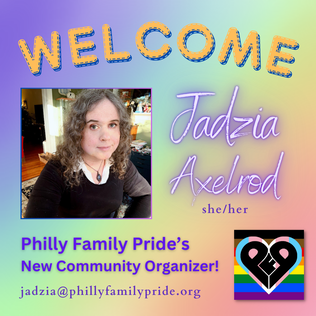 Help us welcome PFP's Jadzia Axelrod (she/her) as the newest part time staffperson for the group. She officially started last week on March 1st, and we're so thrilled to have her! For those of you who don't know Jadzia, she served on PFP's board of directors, most recently as Treasurer, from 2019 until she resigned to take this position last week. Note that long time board member Rebecca Nayak will be taking over as Treasurer for the rest of 2024. Jadzia also has had a big impact on PFP as the designer of our beautiful logo that we adopted in June, 2019. She's hosted numerous gatherings for trans and nonbinary parents, organized Halloween parties (her favorite holiday!) and hosted potlucks at her home for the group. "When we first became parents, we looked around for a warm, welcoming community that our queer family would feel at home in. PFP has been that community since the day we joined," Jadzia commented when she first joined the board. Finally, Jadzia is a writer and cartoonist whose most recent works include Galaxy: The Prettiest Star, the DC Book of Pride, and the recent Hawkgirl series. Jadzia, her wife and their daughter live in West Philly. 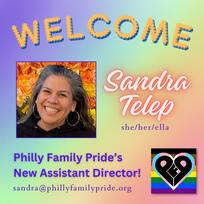 PFP is proud to announce that Sandra Telep (she/her/ella) has been hired as the new Assistant Director of Philadelphia Family Pride. Sandra, parent to two kids (13 and 11), moved to Philadelphia 13 years ago when her oldest was a newborn. In search of community in a new city, she connected with PFP and made friendships she enjoys to this day. Eventually she joined the PFP board of directors in 2013 and served as Vice Chair in 2016 and 2017. More recently, Sandra recorded a popular "Recipes for Resilience" video for our 2021 virtual conference, was a featured speaker in one of our Paths to Parenthood classes this past summer, and helped to plan PFP’s 14th annual Family Matters Conference this fall.  Sandra and her kids - La Costa Chica de Guerrero Sandra and her kids - La Costa Chica de Guerrero In addition to her experience with PFP, Sandra has worked at various organizations including The Human Rights Campaign, The American Civil Liberties Union, and the AFL-CIO. Sandra recently spent a year in Mexico with her children to cement their connection with their family, culture and language there. They had a wonderful experience, but are also very happy to be back home in Philly. We look forward to folks meeting Sandra at upcoming PFP events! She can be reached directly at [email protected].  Philadelphia Family Pride is a non-profit membership organization for LGBTQ+ led families in the greater Philadelphia region. The group is run by a 16 person volunteer board and one part-time paid staff person, the Executive Director (ED). PFP is looking to hire a second, part-time staff person, an Assistant Director (AD), to work with the ED to fulfill the mission of the organization. This person will work closely with the Executive Director to meet or exceed the organization’s goals in the following areas:
The ideal candidate is one who:
The starting pay is $600/month, with the expectation that the pay and hours will slowly increase over the next six months to a year to 30 hours and at least $900/month. The staffer would work as an independent contractor and be responsible for paying their own local, state and federal taxes. The AD will work remotely and be expected to provide their own computer and Internet connection. PFP is an inclusive community for LGBTQ+ prospective parents and families to engage in social events, education and advocacy. We strive to create a fun, reflective and supportive environment where our diverse identities are valued and nurtured while working to promote a more just world. If interested, please apply here by October 23rd. Thank you! 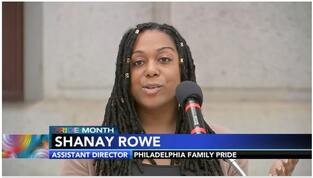 Philadelphia Family Pride would like to announce that after 17 impactful months, Assistant Director Shanay Rowe (she/her) has moved on from PFP. We so appreciate all the work she contributed to LGBTQ+ led families while with the organization, including spearheading the Prideteenth picnics. While working with PFP, Shanay has also been a full-time social worker at Belmont Behavioral Health working with youth AND has been pursuing her doctorate in Nonprofit Leadership from the American College of Education. Just last week, Shanay successfully defended her dissertation and is now Dr. Shanay Rowe! She also just accepted a promotion at Belmont to Risk Manager. Given the increased demands on her time, she has had to step down from her role with PFP effective immediately. Thanks again to Shanay for all her hard work with Philly Family Pride. We wish her well in her next pursuits! "Paths to Parenthood" Series for Prospective LGBTQ+ Parents Returns In Person for Summer 2023!6/22/2023 With the official start of summer comes the start of Philly Family Pride’s Paths to Parenthood series for prospective LGBTQ+ parents! As in past years, this free program is geared toward supporting prospective LGBTQ+ parents as they navigate starting or expanding their families. This year’s series will specifically focus on community-building, conversation, and information and resource sharing.
The first session, an introduction and welcome to the program, will be held Thursday, June 29th at the William Way LGBT Community Center and will be catered by Goldie Falafel. Throughout the rest of the summer, our Paths to Parenthood series will have speakers from local organizations discuss various topics including adoption options, surrogacy, sperm donation, legal considerations, and more. All sessions will have opportunities for questions and will periodically include a panel of current LGBTQ+ parents who are open to sharing their personal stories. The locations for the first six sessions have been confirmed and are reflected in the schedule below. As more locations are secured, updates will be shared accordingly. In addition to the informational sessions and welcome event, we will be hosting two social mixers throughout the course of the program: a post-session restaurant mixer and an end of the summer party/debrief. Locations to be announced. We are thrilled to bring this series back again this summer and look forward to seeing everyone soon! You can find more details about our programs and the session registration links at https://www.philadelphiafamilypride.org/prospective-parent-classes.html  Help us welcome Charlotte Masters (she/her/hers) to the Philadelphia Family Pride team as a summer intern through the Bridging the Gaps Community Health Internship Program (BTGCHIP). BTGCHIP is an interdisciplinary program for graduate-level trainees in healthcare and social services which aims to deliver health-related support to community partners across Pennsylvania and New Jersey. This summer, Charlotte will serve as an organizational support for Philadelphia Family Pride four days a week, focusing on the Paths to Parenthood program for prospective parents and aiding with the growing number of in-person events. Additionally, Charlotte will spend one day per week with other BTGCHIP students in curricular sessions focused on improving healthcare delivery for marginalized populations. Charlotte is a second-year student at the University of Pennsylvania's School of Social Policy and Practice. She is currently halfway through earning her Master of Social Work with a specialization in health care. This past year, Charlotte worked at the Hospital o the University of Pennsylvania as an intern on the General Medicine unit and, this fall, will serve as an intern with the Children's Hospital of Philadelphia in their Department of Psychiatry. At Penn, Charlotte plays on the school's club basketball team in the shooting guard position (talk to her about the women's March Madness tournament!). Charlotte received her bachelor's degree in Human Development and Psychological Services from Northwestern University in 2021. In that time, Charlotte volunteered with Kesem, an international non-profit providing free summer camp and year-round programming for kids whose parents/guardians have or have had cancer. She credits this transformative experience with leading her down the path of social work and driving her passion for holistic, community-centered care. In between undergrad and graduate school, Charlotte worked as an addictions counselor at an inpatient detox facility in Maryland, earning her Alcohol and Drug Trainee status, leading psychoeducation groups, and managing a caseload of clients. Her interests include interpersonal violence prevention, youth advocacy, and public health. She looks forward to integrating her experiences at Philadelphia Family Pride into her clinical and advocacy work moving forward. Charlotte grew up in Bethesda, MD with her parents, younger brothers, and dog, Cooper. She currently lives in Graduate Hospital and enjoys hiking, reading, shuffleboard, good movies, and deviled eggs. Charlotte is excited for the summer ahead and is beyond grateful to have the opportunity to work with the incredible organization that is Philadelphia Family Pride! She can be reached at [email protected]. 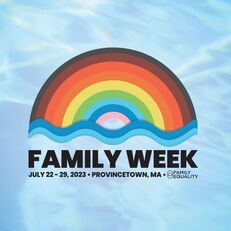 The annual national Family Week sponsored by our friends at Family Equality and COLAGE will take place this year from July 22-29 in Provincetown, MA. This is the largest annual gathering of LGBTQ+ families in the world! Nearly 600 families attended in 2022 including many from the Philadelphia region. TIP #1: REGISTER THIS FRIDAY! Registration opens for drop-off day programming with COLAGE for kids 7+ on Friday, March 17th at 1pm Eastern. These spots will sell out fast. Cost is "pay what you can." Questions can be directed to them at [email protected]. We'd suggest getting on their email list to get notifications about this and other events for children and adults with LGBTQ+ parents and caregivers. Registering for Family Week through Family Equality isn't as urgent, but will also open this Friday, March 17th at Noon. Look in the announcements section of their website. TIP #2: RESERVE A PLACE TO STAY NOW! The biggest expense of Family Week is housing. You can check AirBnB, VRBO, and other similar websites for places to rent in and near Provincetown. Heads up that places in Provincetown will run $400/night or more. Some options to save money include: - Camp at nearby Dune's Edge ($55-$75/night) or Coastal Acres ($805/week). (Those campsites will sell out, so act now!) Some families rent an RV and stay at a campground rather than stay in a tent. - Share a house with other families (try asking in the PFP FB group if you don't have people in mind), - Stay in Truro, Wellfleet or other nearby Cape Cod towns and drive into Provincetown each day, You can save up to 50% per night on the cost of a house or hotel. Parking in Ptown is generally $20/day. - Alternatively, stay in Boston and taking the fast ferry to Ptown on days you most want to visit. This isn't necessarily much of a savings as the ferry can be $75/person round trip, but could save you money on housing if you were only wanting to visit Provincetown for a day or two of the festivities. TIP #3: SAVE ON FOOD Save money while in Ptown by stocking up on food and snacks at the Stop&Shop. There are also many restaurants in town with reasonably priced meal options like Twisted Pizza, Kung Fu Dumplings, and Rosie's Cantina and a food court. TIP #4: RENT OR BRING BIKES Provincetown is small. Many places are either long walks (not always easy with little ones) or a short bike ride away. It's a really affordable way to travel around town and back and forth to the beaches to avoid parking charges. For families with older kids, this may be a good option. Have another tip? Drop it in the comments below! Philadelphia Family Pride is shocked and saddened to learn that the Pennsylvania Superior Court ruled to strip the parental rights of a non-biological, non-gestational lesbian mom after the married couple broke up during the pregnancy that they planned and paid for together. The non-bio mom did everything right including being listed as the "co-intended parent" on their contract with the sperm bank, listed as the "partner" on the agreement with the fertility clinic they used, and retained a law firm to start the adoption process months before the baby was due. Affidavits that they signed as part of the adoption process state that they both intended to be parents to the child and that the non-bio mom was intending to adopt the baby after it was born. They also both chose the sperm donor, split the costs of the assisted reproduction and hiring of a doula, as well as visited their obstetrician together. The Philadelphia Court of Common Pleas granted the non-bio mom's petition after they broke up and started divorce proceedings, holding that she is a legal parent of the child. The plaintiff, the parent who was pregnant, appealed to the Pennsylvania Superior Court who released their opinion on Friday, Feb. 24th, reversing the lower court's ruling, saying they could find no "enforceable contract in place that conferred parental rights on [the non-bio mom]." PFP, as part of our educational mission, holds this case up to show the need for our legislature to pass a law like the Uniform Parentage Act (HB 115) conferring parental rights on intended parents using assisted reproduction. We also strongly encourage couples using an unknown sperm donor to sign an intended parents agreement (like one used for known sperm donors). Finally, same-sex couples in Pennsylvania who haven’t, should go through the second parent adoption process as soon as possible. Finally, since we elect judges in the commonwealth of Pennsylvania, we urge voters to do their due diligence when choosing who to vote for in this year's primary and general elections. Supporting judicial candidates who will protect LGBTQ rights is important at all levels of the judiciary in Pennsylvania. This case is a prime example of that. It is still too early to know if the non-bio mom will appeal to the state supreme court and the chances of them hearing the case, but we will continue to follow this case. More from Mombian.com on why parentage reform law is needed. The PA Humans Relation Commission is expanding their definition of sex to include gender identity and sexual orientation, which would be a big boon for enforcing non discrimination laws for LGBTQ+ folks across the commonwealth. Following an earlier comment period this year, they are holding listening sessions to hear the the impacted communities' thoughts on this action. The Philadelphia listening session will be held on Thursday, September 8th from 12-2:30pm and 5-7:30pm at the Doubletree, 237 South Broad Street in Philadelphia.
More information. |
Archives
April 2024
Categories
All
|
© Philadelphia Family Pride. All rights reserved.

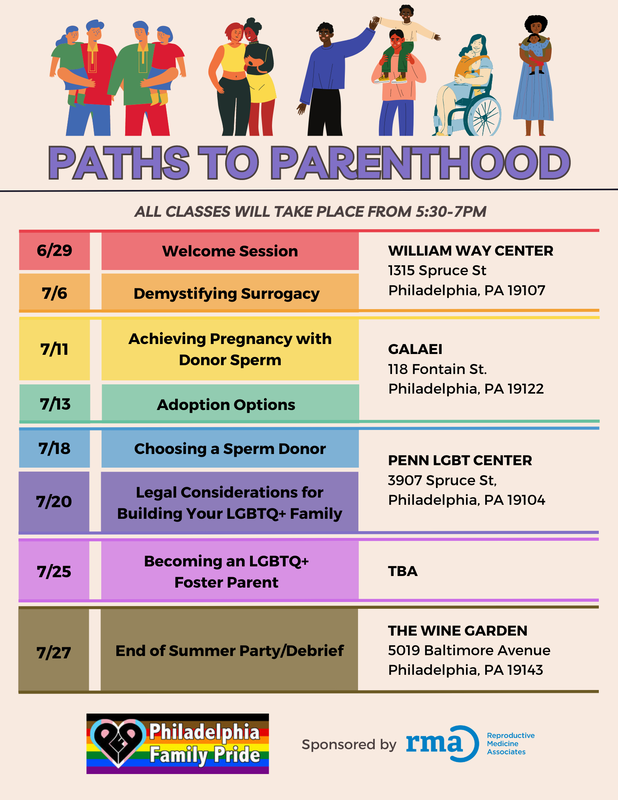
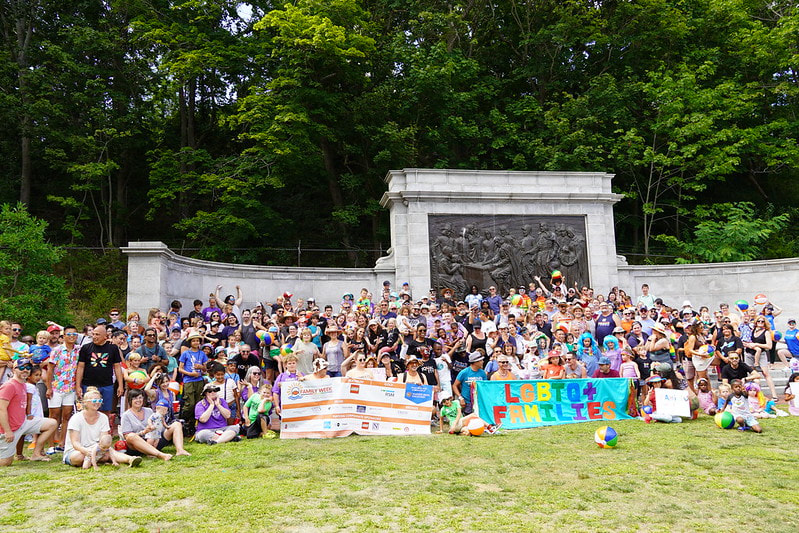
 RSS Feed
RSS Feed

